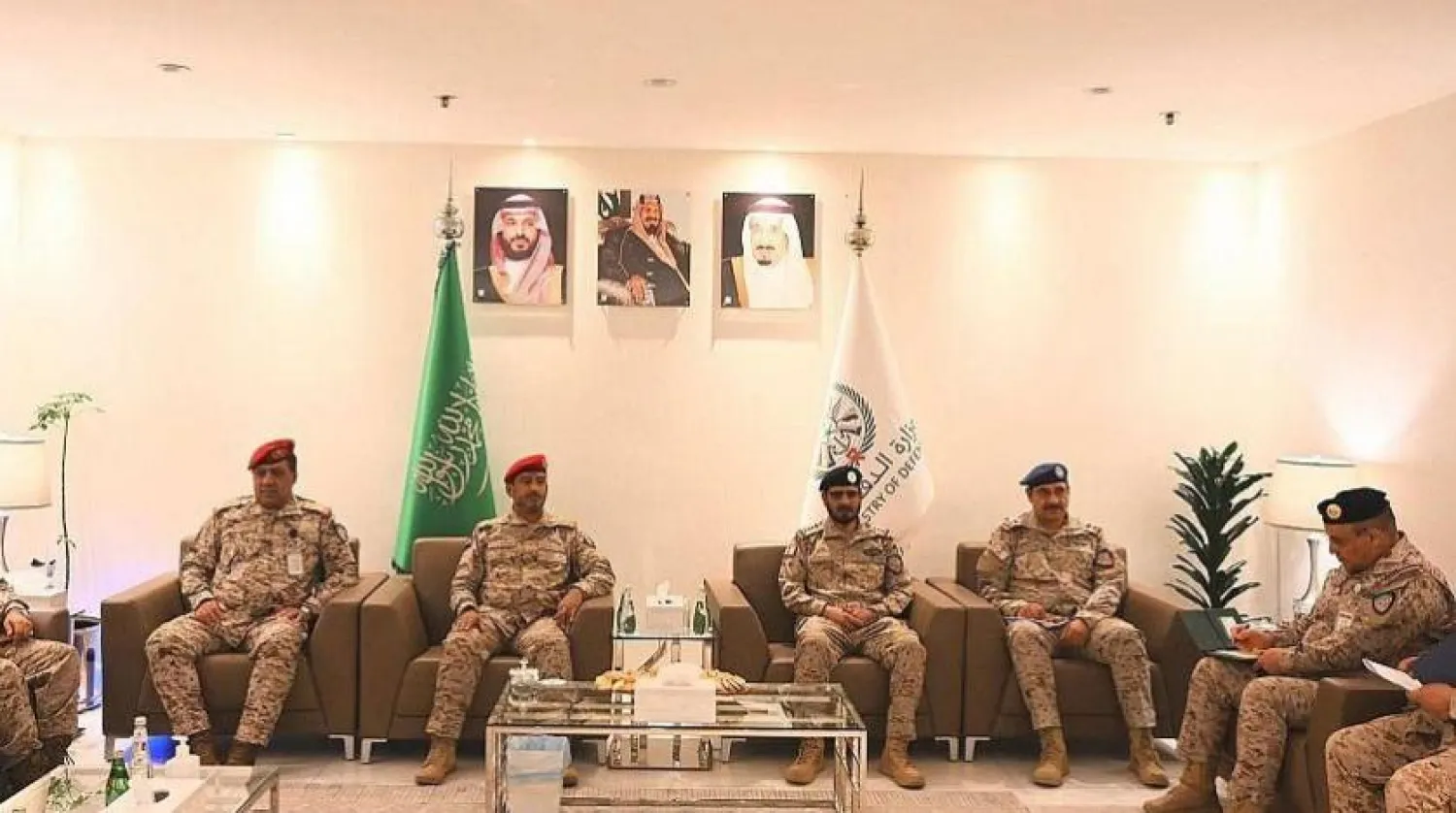Chief of General Staff of the Yemeni Armed Forces Lieutenant General Sagheer bin Aziz stressed on Thursday that the Iran-backed Houthi militias will not agree to peace because they are bound to fulfilling Iran’s destructive agenda in the region.
The Yemeni official met his Saudi counterpart Fayyadh bin Hamed Al Ruwaili and Commander of the Joint Forces and Deputy Chief of the General Staff Lieutenant General Mutlaq bin Salem Al-Azima in Riyadh.
Official Yemeni sources said the meeting tackled issues of common interest and ways to bolster relations between the Saudi and Yemeni armed forces.
Bin Azizi briefed the officials on field developments and the latest Houth terrorist attacks. He noted their violations of the now expired United Nations truce and how they aborted efforts to renew it.
He stressed that the militias continue to reject peace and prolong the war in implementation of Iran’s destructive agenda in Yemen and the Arab region.
Moreover, he warned of the Houthis’ constant threats to marine navigation.
The militias will not yield to peace calls as they don’t even believe in peace in the first place, bin Aziz remarked.
Fulfilling peace will prevent them from carrying out their sectarian agenda that is “alien to the Arab identity, but only emerges in times of chaos and destruction,” he added.
He hailed the role played by the Arab coalition, led by Saudi Arabia, in supporting the Yemeni armed forces in all aspects.
“This support is not unusual from our brothers in Saudia Arabia, which does not hesitate to support all Arab causes,” he went on to say.
Al Ruwaili, for his part, underscored Saudi Arabia and the Arab coalition’s support to the legitimate Yemeni government and armed forces as they seek to end the terrorist Houthi coup and achieve the aspirations of the Yemeni people, reported Yemen’s state news agency Saba.









